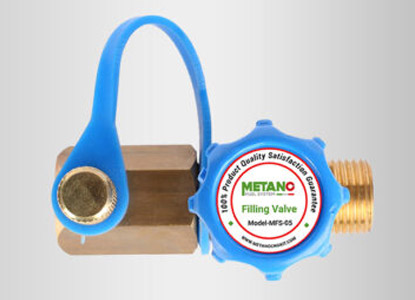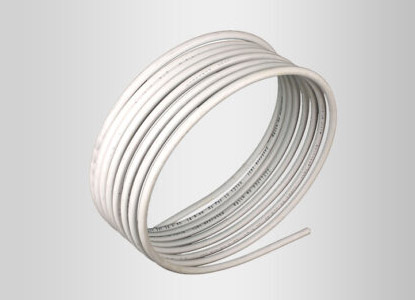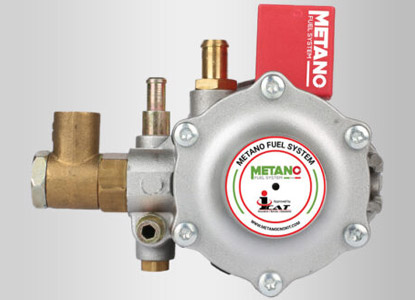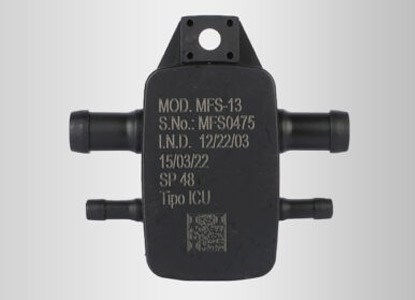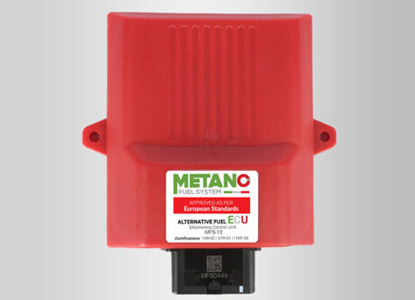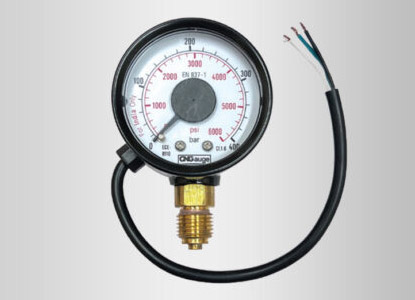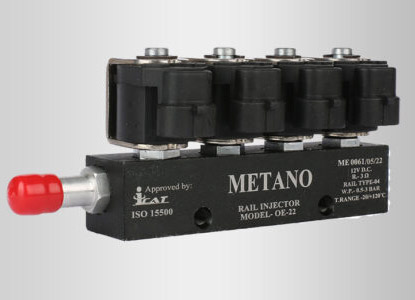 Injector
Injector plays a crucial role in both gasoline and CNG vehicles, delivering fuel into the engine combustion chamber for ignition. In CNG vehicles, the CNG injector precisely sprays compressed natural gas at the right time and in the right quantity, ensuring efficient combustion. This helps maintain optimal
fuel efficiency, smooth engine performance, and lower emissions. CNG injectors are typically controlled by the
vehicle Electronic Control Unit (ECU), which dynamically adjusts fuel delivery based on the engine requirements. A well-functioning injector is essential to ensure that the engine operates at its best, supporting both fuel economy and consistent power output. Additionally, it helps prolong the life of the entire fuel system by ensuring accurate fuel injection. Proper injector performance is key to the overall efficiency and reliability of CNG-powered vehicles.
Fuel injectors are used in a wide variety of applications across different industries and vehicle types. In
passenger vehicles, they are essential for ensuring efficient fuel delivery to modern
cars and
motorcycles, improving fuel economy and reducing emissions.
Commercial vehicles like
trucks,
buses, and
vans also rely on injectors to optimize fuel use in larger engines, especially for long-distance transport. In
industrial machinery, such as
generators,
construction equipment, and
heavy machinery, fuel injectors help manage fuel delivery in high-power, high-demand environments.
Agricultural equipment, including
tractors and
combine harvesters, benefits from fuel injectors to ensure smooth operation in challenging conditions. Additionally,
marine engines used in
boats and
ships use fuel injectors for efficient fuel management on water.
Alternative fuel vehicles, such as those running on
CNG or
LPG, also rely on injectors to regulate the delivery of these fuels. In all these applications, fuel injectors play a critical role in enhancing engine performance, fuel efficiency, and minimizing harmful emissions.
Fuel injectors provide significant advantages, including
precise fuel delivery that ensures better fuel efficiency, reducing consumption and lowering overall operating costs. They promote
complete combustion, which leads to
lower emissions, helping vehicles meet environmental standards. Fuel injectors also improve
engine performance, offering smoother acceleration, faster throttle response, and optimized power output. They contribute to
engine longevity by preventing issues like fuel buildup and irregular combustion. Additionally, fuel injectors are crucial in
alternative fuel vehicles (like
CNG or
LPG), ensuring efficient fuel use and emissions control. Overall, they enhance
reliability, reduce fuel costs, and support
eco-friendly vehicle operation.
 Injector plays a crucial role in both gasoline and CNG vehicles, delivering fuel into the engine combustion chamber for ignition. In CNG vehicles, the CNG injector precisely sprays compressed natural gas at the right time and in the right quantity, ensuring efficient combustion. This helps maintain optimal fuel efficiency, smooth engine performance, and lower emissions. CNG injectors are typically controlled by the vehicle Electronic Control Unit (ECU), which dynamically adjusts fuel delivery based on the engine requirements. A well-functioning injector is essential to ensure that the engine operates at its best, supporting both fuel economy and consistent power output. Additionally, it helps prolong the life of the entire fuel system by ensuring accurate fuel injection. Proper injector performance is key to the overall efficiency and reliability of CNG-powered vehicles.
Injector plays a crucial role in both gasoline and CNG vehicles, delivering fuel into the engine combustion chamber for ignition. In CNG vehicles, the CNG injector precisely sprays compressed natural gas at the right time and in the right quantity, ensuring efficient combustion. This helps maintain optimal fuel efficiency, smooth engine performance, and lower emissions. CNG injectors are typically controlled by the vehicle Electronic Control Unit (ECU), which dynamically adjusts fuel delivery based on the engine requirements. A well-functioning injector is essential to ensure that the engine operates at its best, supporting both fuel economy and consistent power output. Additionally, it helps prolong the life of the entire fuel system by ensuring accurate fuel injection. Proper injector performance is key to the overall efficiency and reliability of CNG-powered vehicles. Injector plays a crucial role in both gasoline and CNG vehicles, delivering fuel into the engine combustion chamber for ignition. In CNG vehicles, the CNG injector precisely sprays compressed natural gas at the right time and in the right quantity, ensuring efficient combustion. This helps maintain optimal fuel efficiency, smooth engine performance, and lower emissions. CNG injectors are typically controlled by the vehicle Electronic Control Unit (ECU), which dynamically adjusts fuel delivery based on the engine requirements. A well-functioning injector is essential to ensure that the engine operates at its best, supporting both fuel economy and consistent power output. Additionally, it helps prolong the life of the entire fuel system by ensuring accurate fuel injection. Proper injector performance is key to the overall efficiency and reliability of CNG-powered vehicles.
Injector plays a crucial role in both gasoline and CNG vehicles, delivering fuel into the engine combustion chamber for ignition. In CNG vehicles, the CNG injector precisely sprays compressed natural gas at the right time and in the right quantity, ensuring efficient combustion. This helps maintain optimal fuel efficiency, smooth engine performance, and lower emissions. CNG injectors are typically controlled by the vehicle Electronic Control Unit (ECU), which dynamically adjusts fuel delivery based on the engine requirements. A well-functioning injector is essential to ensure that the engine operates at its best, supporting both fuel economy and consistent power output. Additionally, it helps prolong the life of the entire fuel system by ensuring accurate fuel injection. Proper injector performance is key to the overall efficiency and reliability of CNG-powered vehicles.



